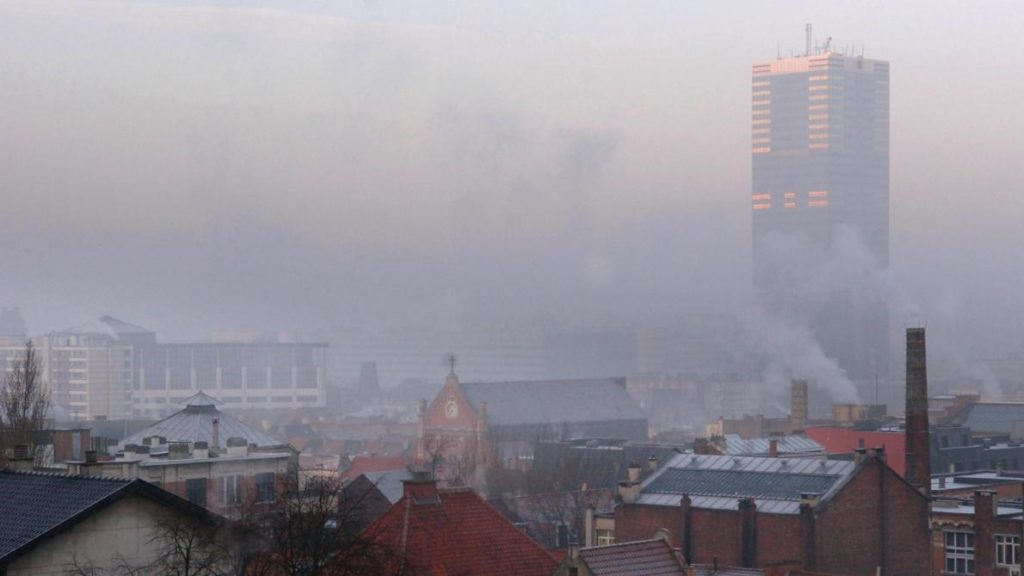Over half (58%) of cities in Belgium averaged dangerous levels of air pollution that exceeded the WHO’s annual targets, even with lockdown-related reduction in emissions as a result of the coronavirus pandemic.
The finding comes from the 2020 World Air Quality report released this morning by IQAir, which presents a global air pollution ranking of cities across 106 countries. Belgium is ranked number 90 worldwide (and 32 for just Europe), with Bangladesh in the number 1 spot for the worst air pollution.
“Many parts of the world experienced unprecedented, but short-lived, improvements in air quality in 2020, as restrictions related to the COVID-19 pandemic caused a steep drop in fossil fuel consumption,” said Lauri Myllyvirta, lead analyst at the Centre for Research on Energy and Clean Air (CREA), who also contributed to the report.
Nevertheless, about half of all European cities exceed the WHO's annual target for fine particulate matter (PM2.5), the most hazardous pollutant to human health.
Eastern and Southern European cities experienced higher levels of air pollution overall, with Bosnia & Herzegovina, North Macedonia, Bulgaria, and Serbia emerging as the most polluted countries in Europe.
“While many cities recorded temporary improvements in air quality due to lockdowns, the health impact of burning fossil fuels remained severe. To see real, long-term improvements in air quality, governments must prioritize clean energy sources,” said Avinash Chanchal, Climate Campaigner for Greenpeace India.
Delhi continued to be the most polluted capital city in the world in 2020, with Brussels ranking number 77 on the list.
Vielsalm, in Wallonia, came in 10th place on the list of least polluted regional cities. The top three were in Finland and Norway.
Related News
- Colruyt launches Eco-Score to show environmental impact of foodstuffs
- Belgium's illegal air pollution problem
The report, conducted with support from Greenpeace and the UN Environment Programme, highlighted unprecedented clean air as a result of short-term COVID-19 lockdown measures, as well as extreme pollution episodes related to climate change around the world, such as sandstorms and wildfires.
For Belgium, the top three cities with the highest air pollution were in Flanders (Brugge, Wielsbeke, and Oostrozebeke).
Overall, air pollution trended downwards across nearly all of Belgium's cities when compared to data collected in previous years, but issues do remain.
Particularly in Flanders and Brussels, concentrations of nitrogen dioxide (NO2) pollution are exceeding both the European annual values and the threshold set by the World Health Organisation (WHO) of 40 µg/m3.
Air pollution is responsible for thousands of premature deaths every year, as well as cardiovascular disease, respiratory problems, and cancer.
Helen Lyons
The Brussels Times

